Ruth Scurr
In Ways of Life (Jonathan Cape, £30), Laura Freeman channels the spirit of the art critic and collector Jim Ede. She traces the origins of Kettle’s Yard in Cambridge – not a museum, nor art gallery, more a cabinet of curiosities – through Ede’s own life, his work for the Tate, the other houses and countries he lived in and the artists he cared for and wrote about.
In Foreign Bodies: Pandemics, Vaccines and the Health of Nations (Simon & Schuster, £30), Simon Schama argues that ‘all history is natural history’, and introduces a rich cast of protagonists who pushed forward the frontiers of science for the good of humanity, regardless of national, territorial boundaries. ‘There are no foreigners, only familiars,’ Schama asserts: a powerful message for our troubled times.
Peter Parker
Why is it that women write such good novels about the two world wars? If Alice Winn isn’t yet quite in the league of Olivia Manning, Susan Hill, Shirley Hazzard, Jennifer Johnston and Pat Barker, her In Memoriam (Viking, £14.99) is nevertheless an extremely assured and engaging contribution to this genre. Two boys at a public school, fearful of admitting their love for each other, set off for the Western Front and find themselves in some of the worst battles of the war, described here in horrifyingly visceral detail. Having long ago written a non-fiction book about public schools and the first world war, I approached this novel with some scepticism; but Winn barely puts a foot wrong and has a remarkable feel for the complicated emotions of her two protagonists. Drawing upon the literature of the trenches and the pitifully short lives of those who marched away from Winn’s own alma mater, Marlborough College, this was easily the most affecting novel I read this year.
Roger Lewis
Many of us owe everything to an inspirational schoolteacher. David Wood, who appeared in the film If and on stage at Oxford in Doctor Faustus with Richard Burton and Elizabeth Taylor before writing his classic children’s plays, gathers his 45-year correspondence with his own mentor, Frank Whitbourn, in Frank Exchanges, edited by Chris Abbott (Book Guild Ltd, £12.99). Whitbourn (1910-2005) taught at Collyer’s School, Horsham and was the director of a young people’s drama course in West Sussex, operated by an enlightened county council. There Wood met him, and ever afterwards they exchanged long letters about theatre and theatre folk. How many books find room for a mention not only of Professor Sir Christopher Ricks but also Eric Potts, who created the role of Big Ears in Noddy? Completely charming.
Graham Robb
The farcical catastrophe of Dien Bien Phu in the First Indochina War is the centrepiece of Éric Vuillard’s stylish and steely An Honourable Exit (Picador, £14.99) in which the Vietminh annihilate the French army but not the parasitic corporations it protected.
Jacob Mikanowski’s Goodbye Eastern Europe (Oneworld, £22) is a scholarly and intimate history of ‘a land of small countries wedged between great powers’, from ‘vampire Europe’ (the realm of fangless nuisances who ‘forgot to die’) to the latest Russian invasion of Ukraine.
The saddest image in Stuart Maconie’s chatty and cheerful The Full English (HarperNorth, £20), which retraces J.B. Priestley’s English Journey of 1933, is the high-speed train racing north on the cover. At Bradford Interchange he fumes at the Johnson government’s scrapping of the eastern leg of HS2 and observes: ‘England’s seventh biggest city is more poorly served by rail in the age of the internet than it was in the age of steam. Some powerhouse.’
Andrew Lycett
No books have given me greater pleasure this year than Vaseem Khan’s lively, good natured detective novels set in India. In his ‘Malabar House’ series he has abandoned the folksy contemporary world of Inspector Chopra for a historical canvas presented through the lens of Inspector Persis Wadia, India’s first female detective, a beautifully realised character epitomising the hopes and struggles of a newly independent nation. Death of a Lesser God (Hodder & Stoughton, £16.99) abounds in Khan’s deft evocations of period and place (mainly Mumbai, but here also Calcutta).
Among many history books, Julian Jackson’s France on Trial (Allen Lane, £25) stands out – a meticulously researched, attractively written account of the trial of the first world war hero turned Nazi collaborator Marshal Pétain and its woeful Vichy background. Excellent on Pétain’s legacy in modern right-wing French politics, Jackson adopts the requisite tone for a historian of our times, interrogating uncomfortable truths with objectivity mixed with lightness of touch.
Past or future for an additional novelistic pick? Robert Harris produced Act of Oblivion (Hutchinson Heinemann, £22), an absorbing novel about religious and related fanaticism in the 17th century, but Sebastian Faulks marginally trumped him with the sheer scope of his ambition in his forward-looking (c. 2030-40) The Seventh Son (also Hutchinson Heinemann, £22), which combines sophisticated intellectual enquiry (human consciousness, evolution, medical ethics) with typically well-engineered storytelling.
Michela Wrong
This was a strong year for non-fiction.A new book by the puzzlingly under-appreciated South African writer Johnny Steinberg is always an event, and his chunky Winnie & Nelson: Portrait of a Marriage (William Collins, £25) is the best yet. This account of the relationship between one of the most famous – and glamorous – couples in recent political history places a landmine under many of the myths cultivated by the left. While Nelson emerges as fundamentally decent, if all-too-human, Winnie comes across not as a revolutionary heroine but as a warped monster: a woman lucky to have escaped prosecution for the series of murders committed by her band of thuggish supporters. I’m not usually a fan of long books – this one is 576 pages – but was left wanting more.
Stuart A. Reid’s The Lumumba Plot: The Secret History of the CIA and a Cold War Assassination (Alfred A. Knopf, £30) was another meaty read. The story of how Patrice Lumumba, independent Congo’s first prime minister, ended up in front of a firing squad in Katanga, his body then dismembered and dissolved in acid, has been told before, as has the role the US and Belgium played in eliminating Lumumba from the scene. But not in this detail, with so much context, or with such nuance. Reid consulted hitherto inaccessible archives, cables, letters and tape recordings to give us this multifaceted account, in which we learn as much about the doomed UN secretary general Dag Hammarskjöld as we do about Lumumba, his nemesis the Colonel Joseph Mobutu and the CIA station chief Larry Devlin.
Finally, I savoured This is Not America by Tomiwa Owolade (Atlantic Books, £18.99), which succinctly puts into words what so many of us have instinctively felt since the Black Lives Matter movement saw the light of day. Owolade, whose parents are Nigerian, highlights the dangers of clumsily importing an obsession with racial injustice rooted in specifically US history and grafting it onto a society – ours – with a significantly different backstory. It’s a brave argument for a young writer at the start of his career to be making. We can expect more where that came from.
Rod Liddle
I have just reached 1964 in David Kynaston’s epic A Northern Wind: Britain 1962-65 (Bloomsbury, £30) which, among other things, details the horrific destruction of hundreds of our towns and cities at the hands of evangelistic planners and stupid architects. Down came the Victorian terraces, the clock towers and the stately warehouses. Up went hideous, antisocial tower blocks and in came the roads and carparks and bleak shopping centres, destroying the high streets. What struck me from Kynaston’s research is how much the public hated the change and were vocal in doing so. The public, as usual, was right. The planners, though, succeeded where Goering had failed, and our towns were laid waste.
Never was there a more timely publication than Israelophobia by Jake Wallis Simons (Constable, £12.99), which came out shortly before the savages of Hamas started burning babies. Those dim-witted right-on kids in their keffiyehs with their (very recently created) Palestinian flags should be forced to read every word of it.
Swayed by the generous praise it received, I read Eleanor Catton’s Birnam Wood (Granta, £20) about a group of radical eco-warriors and their battle with a psychotic American venture capitalist. It was every bit as predictable and one-dimensional as you might imagine. These days books don’t have to be any good to get published and win awards.They just have to be on the correct side.
Richard Ingrams
‘The most original, stimulating and impressive man I have ever met. My prediction is that he will be remembered as a philosopher long after his business achievements are forgotten.’ Andrew (now Lord) Roberts was writing in praise of the late and distinctly shady financier Sir James Goldsmith. So it is not surprising to find him in his very readable book The Chief (Simon & Schuster, £25) being equally laudatory about the inventor of the Daily Mail, Lord Northcliffe (‘a great man, a genius’), whose achievements are ‘inarguable’. What makes it difficult to share Roberts’s view is his comic account of how Northcliffe ended his days seriously off his rocker, since the crazy press lord seems just an exaggerated version of his former self. His response when told of rumours that he had lost his marbles was to ring up the night editor of the Mail and order him to put his best reporter on the story. Even in the afterlife, it seems, he continued to issue instructions to the hacks with the help of a medium: ‘Don’t chew your pencils when you write. Juicy figs are much better.’
Stephen Bayley
With synchronicity that Jung would have recognised, a pair of marvellous biographies exposed the busy demons who tormented two of our most influential myth-makers. Adam Sisman’s The Secret Life of John le Carré (Profile Books, £16.99) and Nicholas Shakespeare’s Ian Fleming (Penguin, £30) reveal one to be a fornicator of demented energy, the other an elegant bon viveur with a taste for S&M as well as grande marque champagne. The internal distress of Le Carré and Fleming is revealed in their novels only in coded language. But thanks to Sisman and Shakespeare, we can now read Bond and Smiley again with new (and unsettling) insights.
Altogether different in the biographical mode is Donna Leon’s memoir, Wandering Through Life (Hutchinson Heinemann, £20). Leon is the prolific author of the pleasing murder mystery series featuring the philosophical Venetian policeman Guido Brunetti. Here she evokes hermetic Venice and its moods in masterly style. But her own story is an itinerant one: life on a farm, teaching in Iran and China. The writing is easy-going, even apparently slight. She confides in the reader with persistent, amiable interrogatives. It is a charming read which tells us little about her inner life. She remains a fascinating enigma. So apt that espionage and murder mystery authors have their own secrets.
Boyd Tonkin
Tom Crewe’s pitch-perfect debut novel The New Life (Chatto & Windus, £16.99) reanimates the high-minded English radicals of the 1890s as they campaign for the dignity of same-sex love: a tender, astute exploration of the pathos and confusion behind even the bravest causes. Javier Marías’s farewell novel, Tomás Nevinson, translated by Margaret Jull Costa (Hamish Hamilton, £22), saw the late Spanish spellbinder leave us in a droll, delicious, thrillerish labyrinth, as a superannuated spy hunts a retired IRA/ETA bomb-mistress in a secretive riverside town. Gary Saul Morson’s wise, erudite Wonder Confronts Certainty (Harvard University Press, £33.95) enlists Russian literary titans from Tolstoy to Vasily Grossman to stage an enthralling dialogue between humanistic hope and doubt, and the murderous self-righteousness of the Russian ‘revolutionist’ tradition. Under Morson’s eyes, classic works illuminate still-burning questions of idealism, ideology and violence: criticism at its urgent, heartfelt best.
William Dalrymple
The Tree & Serpent exhibition at the Metropolitan Museum, New York was the year’s cultural highlight for me, along with its gorgeous accompanying catalogue by John Guy: Tree & Serpent: Early Buddhist Art in India (Metropolitan Museum of Art, £50). The art of southern India that the exhibition showcased opened a window on a sophisticated courtly and monastic world previously known only to a handful of historians. It was a world where bare-chested rajas in elaborate turbans and cockades set off on elephant-back pilgrimages as casually as we might jump in a taxi; and one of ecstatic devotion, where a glimpse of the Buddha’s relics could drive a palace full of dignified courtiers into the ancient Indian equivalent of weeping Beatlemania. All this was set in a sacred landscape where the jungles were alive with wonders: lotus buds that spilled priceless jewels with the abundance of magical cornucopias; and eagle-beaked gryphons and many-headed cobras that competed to protect the turban of the Buddha or the dust of his disciples.
Empire-building is usually envisaged as the concern of nation states, but as Philip J. Stern convincingly shows in Empire, Incorporated (Belknap, £30.95), his brilliant, ambitious and often surprising new study, it was initially more often the entirely privatised business of Tudor commercial corporations. With clarity and remarkable archival reach, Stern convincingly argues that it was joint-stock ‘venture colonialism’ that financed and drove the earliest attempts at establishing colonies from Ulster to Spitsbergen, Virginia to ‘Cathay’, and even a Puritan republic of the Bahamas, as ruthless and often violent slavers, privateers and merchant adventures sailed off to establish outposts that blurred the line between commerce and conquest. It was these trading posts, Stern argues, that eventually grew to be the ‘cornerstone of a British Empire’, made up of charters, concessions and contracts that were ‘never fully owned or operated by Britain itself’. Empire, Incorporated is a remarkable contribution to the current global debate about empire and a small masterpiece of research.
Born in Bengal, Nandini Das is a professor of Early Modern English Literature at Oxford and is as sure-footed and knowledgeable about the politics and arts of Jacobean London as she is about those of the Mughal court. As she puts it in her remarkable book about Sir Thomas Roe’s 1616 embassy to Jahangir, Courting India (Bloomsbury, £30) ‘in practical terms, Roe’s embassy achieved very little. To the Mughals, the English were hardly worth a mention.’ The embassy may have been a failure, but Das’s superb book about it is a triumph of writing and scholarship.
Finally, I loved Lloyd Llewellyn-Jones’s Persians: The Age of the Great Kings (Headline, £12.99) and Ancient Persia and the Book of Esther (I.B. Tauris £24.99). At a time when relations between Iran and Israel have never been worse, it is good to remember that Persians and Jews were once peacefully and productively intertwined in a single cultural world and that a book of the Old Testament provides one of our best sources for ancient Persian court culture.
Mark Amory
I have been interested in Uganda ever since I went there just before independence in 1962. Mark Leopold’s Idi Amin: The Story of Africa’s Icon of Evil (Yale, £12.99) explained in persuasive detail that this legendary monster did many, but not all, of the ruthless acts attributed to him, sometimes, but not always, having a good reason. The only time I met him he was charming and offered to lend us his helicopter.
In libraries across the land there are sets of Proust’s In Search of Lost Time with the first and perhaps second volumes showing signs of wear, the remaining ones apparently untouched. The solution is to read and listen to the work in tandem, skipping from sight to sound and back, and occasionally rereading. My version in book form is the revised and updated edition of the Scott Moncrieff and Terence Kilmartin edition of 1992.I listened to it read by Neville Jason on Naxos Audiobooks.
Julie Burchill
This Is Not America by Tomiwa Owolade (Atlantic Books, £18.99), Beyond Grievance: What the Left Gets Wrong About Ethnic Minorities by Rakib Ehsan (Forum, £16.99) and It’s Not About Whiteness, It’s About Wealth by Remi Adekoya (Constable, £14.99) were rays of light in a very dense year for political thinking. They need to be on the school curriculum, and on television as documentaries, to educate us all.
Claire Lowdon
Knowing my love of both gardens and words, my family furnish me with at least one plant-based book at Christmas: think A Little Book of Latin for Gardeners by Peter Parker, or my perennial favourite, James Fenton’s A Garden from a Hundred Packets of Seed. This year I’ve already treated myself to Modern Medicines from Plants, edited by Henry Oakley (CRC Press, £16.99) a quirky, accessible compendium of familiar plants with surprising backstories. The entry for liquorice includes the plant’s fascinating etymology and ancient medicinal uses; its cultivation by Benedictine monks and the resulting Yorkshire liquorice industry; its chemistry and clinical applications; and the construction worker in Massachusetts who died after eating a bag and a half of black liquorice every day for a few weeks. Intuitive formatting allows the lay reader to dive only as deep into the chemistry as they wish. A treasure chest of botanical trivia for the doctors, historians, scientists, and gardeners in your lives.
Sam Leith
Two new books I’ve read very recently have impressed me enormously. One is Nicholas Shakespeare’s Ian Fleming: The Complete Man (Harvill Secker, £30). The author’s stupendous research into Fleming’s life establishes that as well as creating a fictional spy, Fleming was a real one – and at the highest possible levels. His nicotinous fingers were in half the secret pies of the 20th century, from the creation of the CIA to the plots against Castro, from Operation Mincemeat and the smuggling of Belgian bullion to the formation and secret missions of the crack commando squad 30AU. Nor was he any stranger to the hurly-burly of the chaise-longue. We’re nearly two thirds of the way through Shakespeare’s long book before our man sits down to write Casino Royale, and it’s all the better for it.
The other book I loved is Jonathan Lethem’s Brooklyn Crime Novel (Atlantic Books, £20), which returns, 20 years after his Fortress of Solitude, to the gentrifying-but-not-quite-gentrified Brooklyn of the author’s 1970s childhood. If you try to describe this looping, loopy piece of work, with its plethora of time-frames and its many nameless characters – Non-fiction novel? Psycho-geographical put-on? Metafictional ethno-graphy? – it sounds like the sort of thing to give readers a throbbing migraine. But it’s moving and funny, artful and delightful, and I couldn’t recommend it more highly.
Mary Beard
The Fraud (Hamish Hamilton, £20) is Zadie Smith’s first historical novel, set in 19th-century England, and starring the failing novelist William Harrison Ainsworth and his housekeeper Eliza Touchet, with a memorable cameo role for Charles Dickens. The story unfolds against the background of the notorious and long-running trial (the Tichborne Case) which tested the claims of an Australian butcher to be the rightful inheritor of the Tichborne baronetcy. (The butcher lost.) This, in Smith’s hands, becomes a wonderful meditation on truth and falsehood, and the boundaries between fact and fiction. It makes a great read; but it is a splendid audio book too. Smith delivers it herself, and is a surprisingly convincing Eliza Touchet, complete with Scottish accent.
Francis Wheen
Second only to my spouse, my most cherished bedtime companion in recent months has been NB by JC (Carcanet, £25), a selection of the diary paragraphs by James Campbell that appeared in the TLS between 1997 and 2020, when a new editor decided to save a few bob by sacking him. JC’s weekly column was an erudite, perambulatory stroll through literary oddities and quiddities, with many laughs and occasional harrumphs. To pick an item at random: why did the director of public prosecutions instruct the police in 1926 to find out ‘who and what Dr F.R. Leavis is’? NB by JC reveals all.
Francesca Peacock
I read Lalla Romano’s A Silence Shared (Pushkin Press, £10) back in January, and its disconcerting, wintry quietness has stayed with me all year. Telling of wartime occupation, the lives of resistance fighters and a bleak, snow-covered countryside, its domestic and political tensions rival the best of Natalia Ginzburg. Indeed, it’s been a good year for eerie fiction. Sophie Mackintosh’s Cursed Bread (Hamish Hamilton, £16.99) is a story of love, lust and appetite – with violent sex and killer carbs – and is also a book I haven’t been able to stop thinking about.
Got something to add? Join the discussion and comment below.
Get 10 issues for just $10
Subscribe to The Spectator Australia today for the next 10 magazine issues, plus full online access, for just $10.
You might disagree with half of it, but you’ll enjoy reading all of it. Try your first month for free, then just $2 a week for the remainder of your first year.

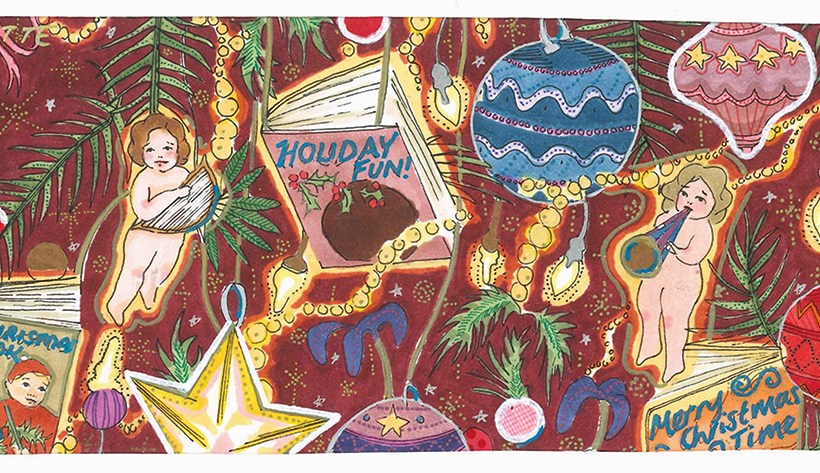
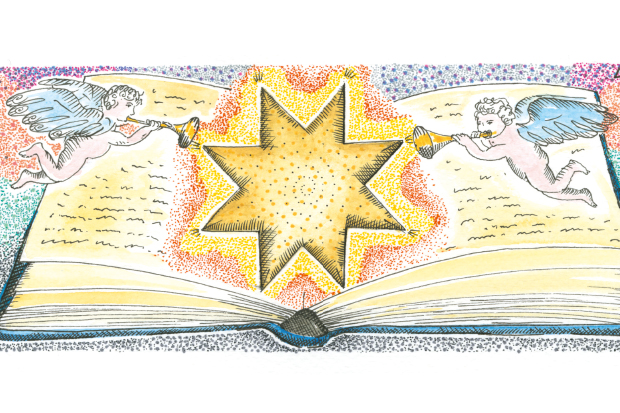
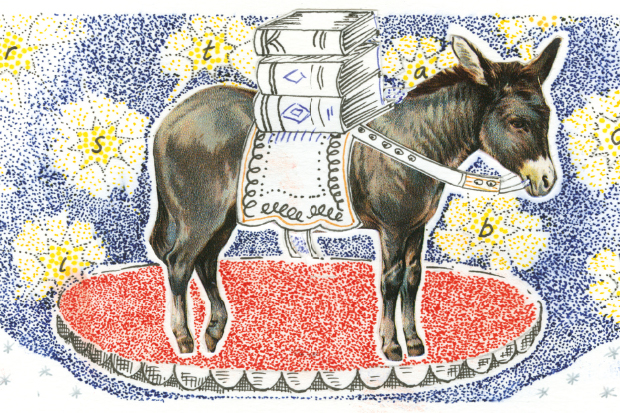

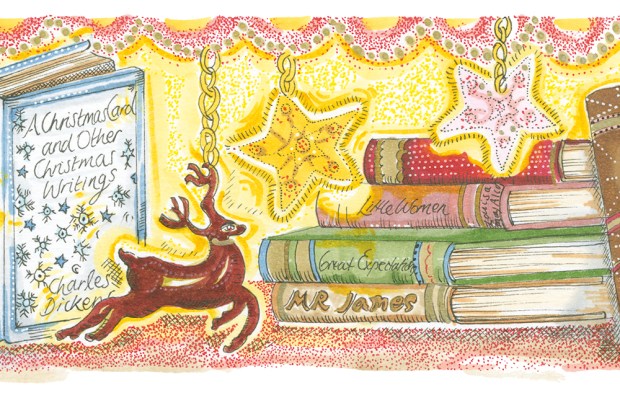
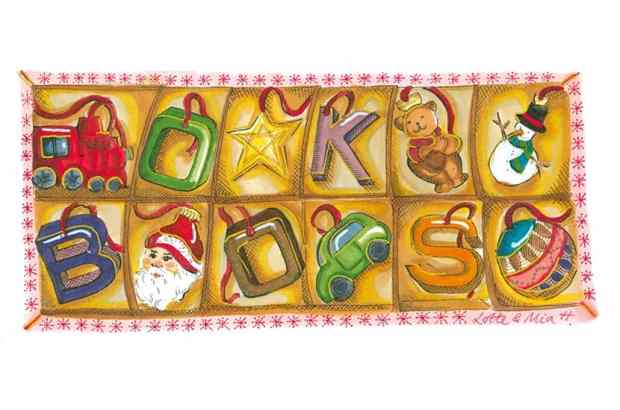







Comments
Don't miss out
Join the conversation with other Spectator Australia readers. Subscribe to leave a comment.
SUBSCRIBEAlready a subscriber? Log in